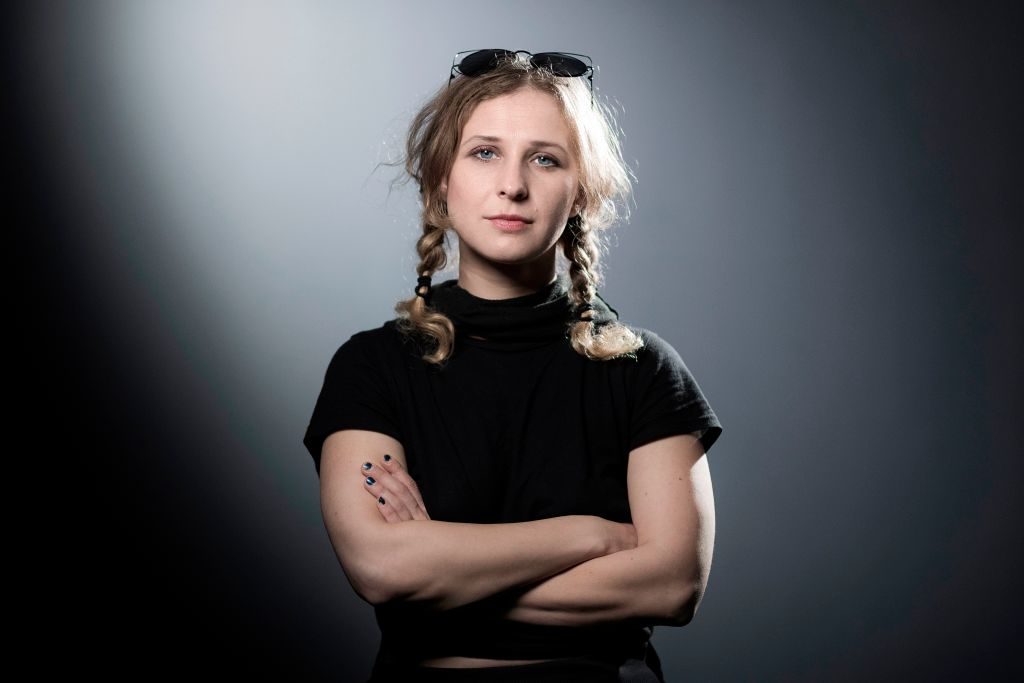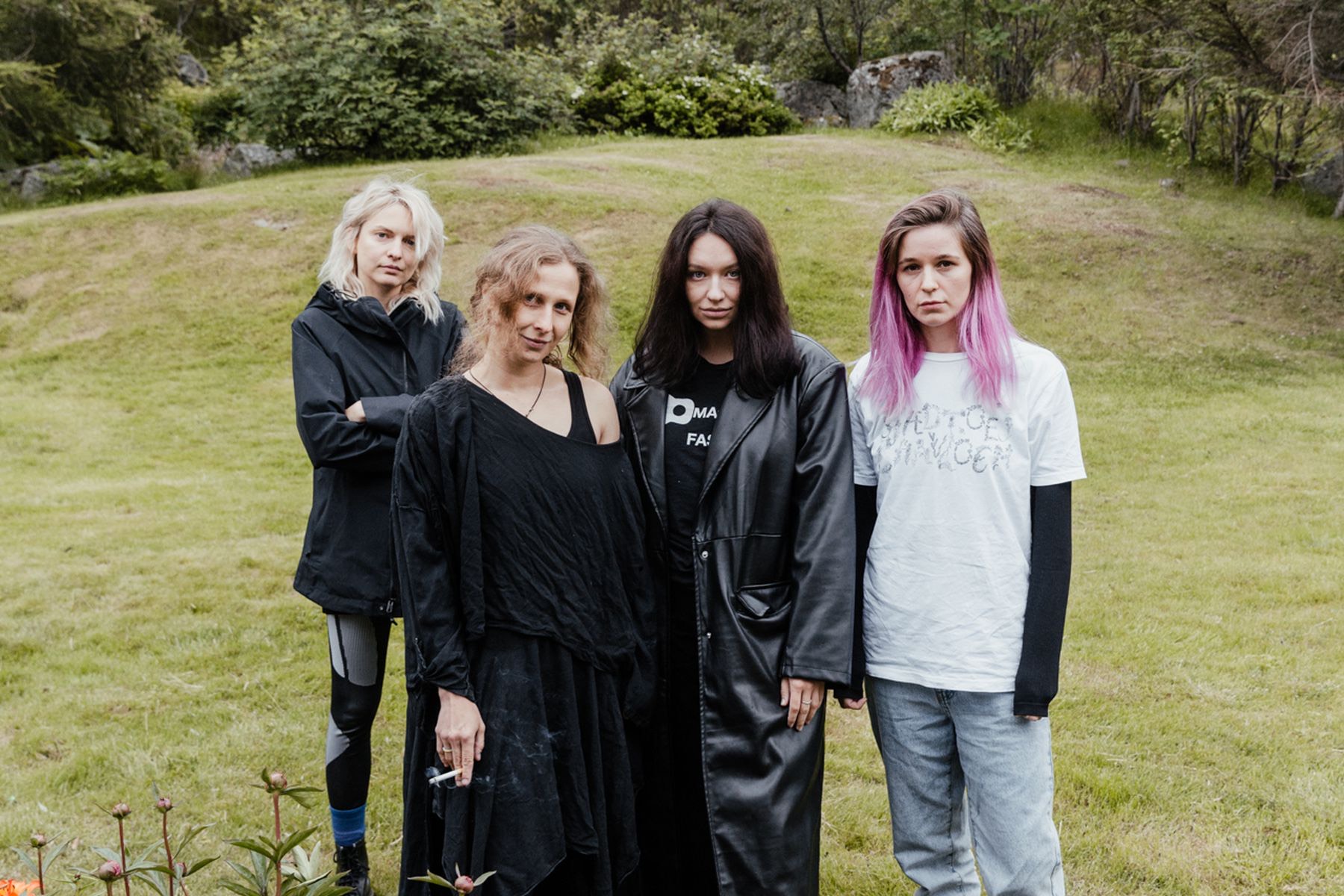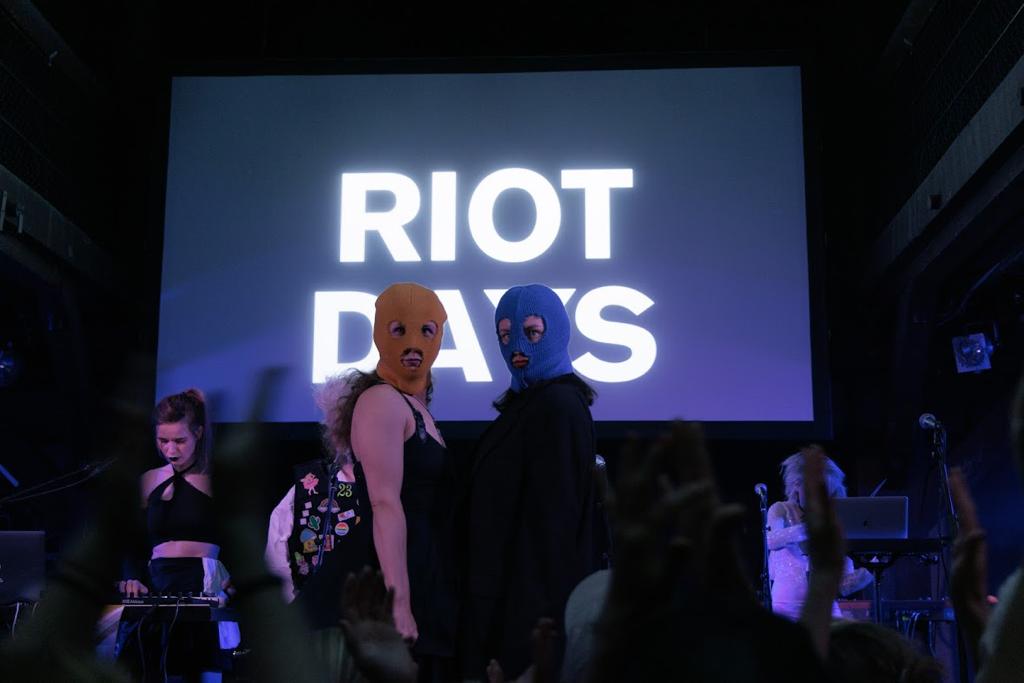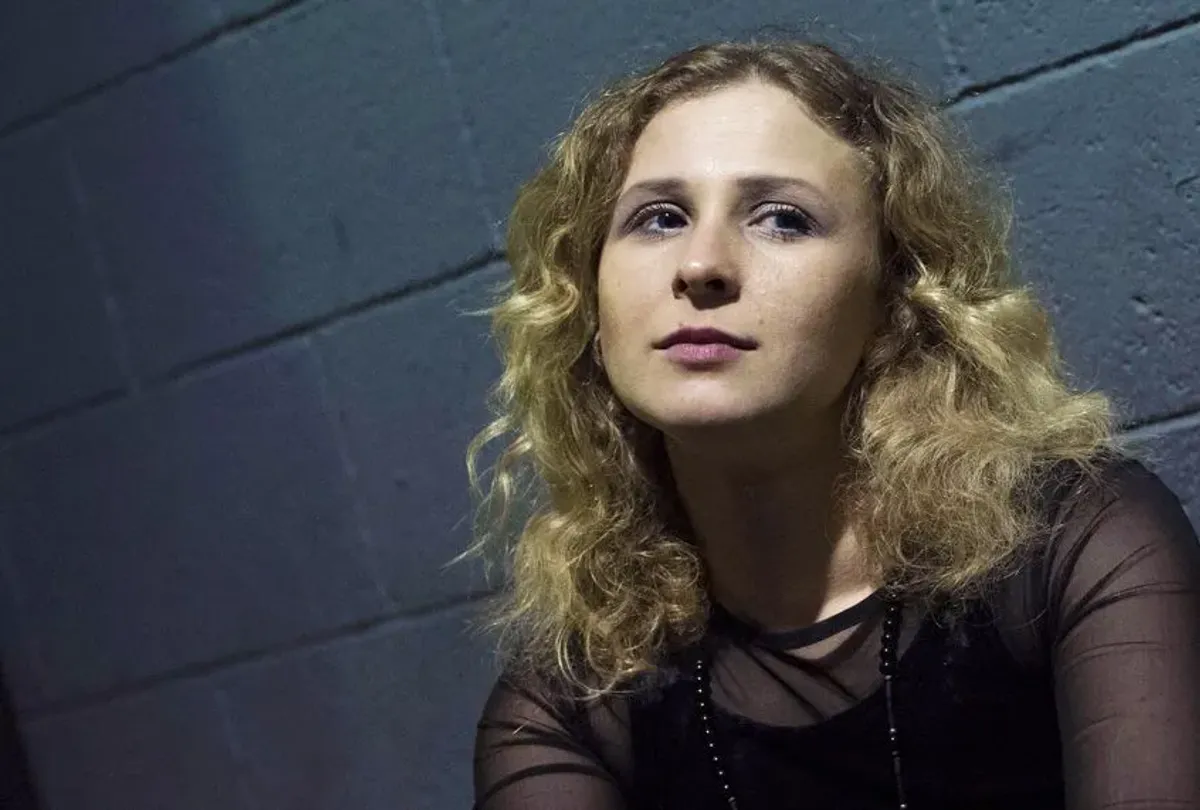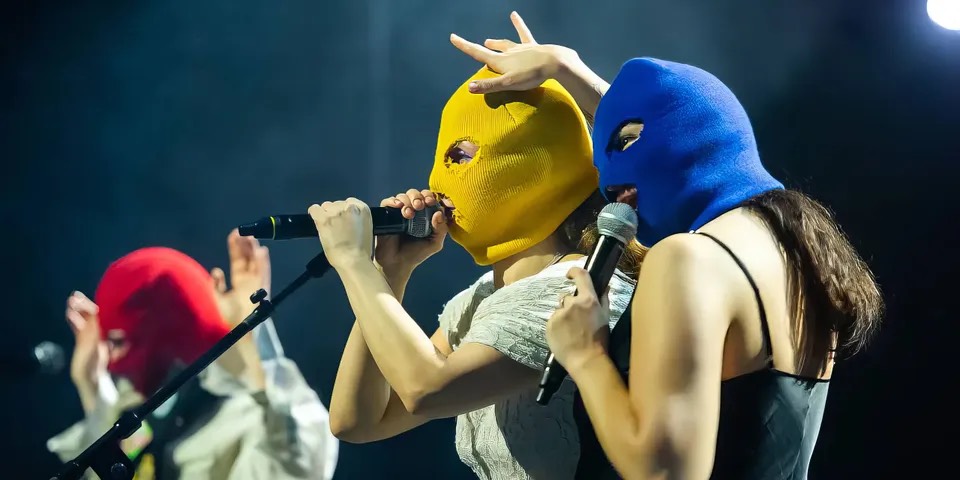Pussy Riot’s Maria “Masha” Alyokhina wants the world to know that she’s not a musician and that Pussy Riot is not a band but so much more. Pussy Riot is a collective of Russian female activists that utilizes a wide range of artistic media as tools for protest. Music is a large part of what they do. It’s a visceral medium with the ability to cut below skin and remain there which makes it an invaluable tool for resistance. However, Pussy Riot is about the whole, the pieces that come together to make an impact on this world.
READ: Profile — Boyish Laughs Through the Pain (Exclusive Interview)
As such, they utilize performance art, spoken word, visual media and more in addition to music to speak out against the unjust. These pieces are small on their own, almost inconsequential, able to be ignored and forgotten. But when they come together, they become a mighty roar capable of shaking the world itself and forcing the people to pay attention. Each person on this planet is heading toward some kind of destination and in this world, big leaps rarely get a person to where they want to go. It is the small steps that carry us, that make up a journey and the only way to get where you’re going is to keep moving forward.
Pussy Riot stands by the philosophy that great change may only come about as a result of a collective taking small steps in the same direction. Together, each small step forward has the potential to become thunder and leave a crater in its wake.
303 Magazine spoke with Alyokhina, a longtime member of Pussy Riot, about these small steps, the power of the individual, the power of raised voices, her multimedia show “Riot Days” — which she’s bringing to the Gothic Theatre on November 9th — and more.
Pussy Riot is believed to currently be made up of approximately 11 people, most of whom remain anonymous for obvious safety purposes. Masha Alyokhina is one of the few known members. She reached international recognition following her 2012 arrest alongside fellow Pussy Riot members, Nadia Tolokonnikova and Yekaterina Samutsevich. They were arrested for “hooliganism motivated by religious hatred” following a performance that took place in front of the Cathedral of Christ the Savior in Moscow. As a result, the women spent two years in prison until being released at the end of 2013 due to the passing of an amnesty bill.
After release, Alyokhina realized that she now had a platform, “the power of the microphone,” as she described it. She began speaking out in support of prison reform and many other issues, continuing her work with Pussy Riot. This led to increased scrutiny from Russian authorities which led to continued arrests that increased in frequency over the next 10 years. Pussy Riot eventually became one of Putin’s most hated adversaries, his administration cracking down on them whenever possible and Alyokhina was arrested again in 2021 for encouraging the public to use social media as a protest tool during the COVID-19 pandemic. Following her 2022 release and another detaining, it eventually got to be too much, and, in 2022, Alyokhina disguised herself as a food delivery person and fled to Lithuania, successfully escaping Russia.
Since then, Alyokhina’s become an even greater internationally recognized symbol of rebellion and the power of free speech. She’s had guest spots on CNN and profiles in the New York Times and other publications around the world. But all this recognition on its own means nothing to her. Instead, she recognizes it for it is: a tool. She told 303, “If you have the microphone — metaphorically and physically —you should use it with an understanding of your responsibility because if you have a public voice and people are listening to you you should understand that your opinion can change someone’s opinion.”
This was something she learned well before her time with Pussy Riot, back when she was a “usual student” studying poetry and raising her young son in Moscow. She lived near Khimki Forest on the outskirts of the city and would often walk through the trees with her son. One day, she learned that a development project had been put in place proposing to turn the forest into condominiums. This didn’t sit well with her and she sought to do something about it, unknowingly taking her first small step into activism. She contacted Greenpeace and other environmental organizations who told her she needed to collect a certain amount of signatures in a very short time in order for anything to be done.
Due to her sheer determination, she achieved what she set out to do and was able to get the developments postponed. Her success ignited something within her. She’d always been “sensitive to injustice” but now she realized the power an individual can wield when determined to make change. However, she also wanted help. Alyokhina soon met “an amazing person” who taught her how to organize demonstrations. These allowed her to understand what happens when a group of determined individuals come together, the impact a collective can make.
Alyokhina eventually came across Pussy Riot through the connections she was making, becoming an official member in early 2012, months before her first arrest. During this early period, she used her experience organizing demonstrations to help develop Pussy Riot’s infamous “guerilla gigs,” as they were dubbed by the media. These are surprise shows that they’d perform in front of important religious and governmental agencies such as the Cathedral of Christ the Savior. While these may seem impromptu, they must be meticulously crafted weeks in advance due to the Russian government’s ability to shut them down. Alyokhina said, “All the details, including the audit documentation, should be planned [way in advance]. For example, for band players, we were rehearsing for a month. We had an action for 40 seconds that was rehearsed almost every day for months.”
Following the first arrest and prior to her eventual escape, Alyokhina planned many of these actions while continuing to use social media and the platforms she’d fought for to speak out against Putin. She described each of these major life milestones as “small moments that led me to this room I’m in now,” referring to the greenroom backstage at one of her “Riot Days” performances from which she was video calling 303 with a twinkle in her eye and a vape in her hand. As much life as Alyokhina’s lived, as many fights as she’s fought and is continuing to fight, this idea of “small steps” speaks to a kind of peace that emanates from her, a confidence and resignment that’s infectious and fills the heart with the knowledge there is hope for this burning world as long as there are people such as her in it.
“Riot Days” is a multimedia realization of Alyokhina’s memoir of the same name. She said, “[Riot Days] is not documentary theater. It is the manifesto. We use everything we have, speech, the manifesto and songs and video and some unpredictable parts. So basically, this is a story from my first action to the last day of prison. It’s an experience that makes [people] feel it. You can use anything you actually can create and that’s what we’re doing.” Every dollar of the proceeds benefits the Ukrainian Children’s Hospital, the only of its kind still standing in the entirety of Ukraine. This is Alyokhina’s effort to do as much as she can for Ukraine and her European tour ended up raising thousands of dollars for the Hospital. “I don’t have any universal answers,” she said. “But I cannot live without doing [what I can] to stop this war.”
The power to change the world is in the hands of the people, in the heart of each individual drawing breath. The sheer amount of pain and injustice in this world can seem almost insurmountable at times, a daunting horizon threatening to overtake all that’s good and alive. People such as Alyokhina and Pussy Riot remind us that there is light within us fighting to get out in the form of song and art and love that we may use to shine away the darkness. All we need to do is clasp hands and step forward.





